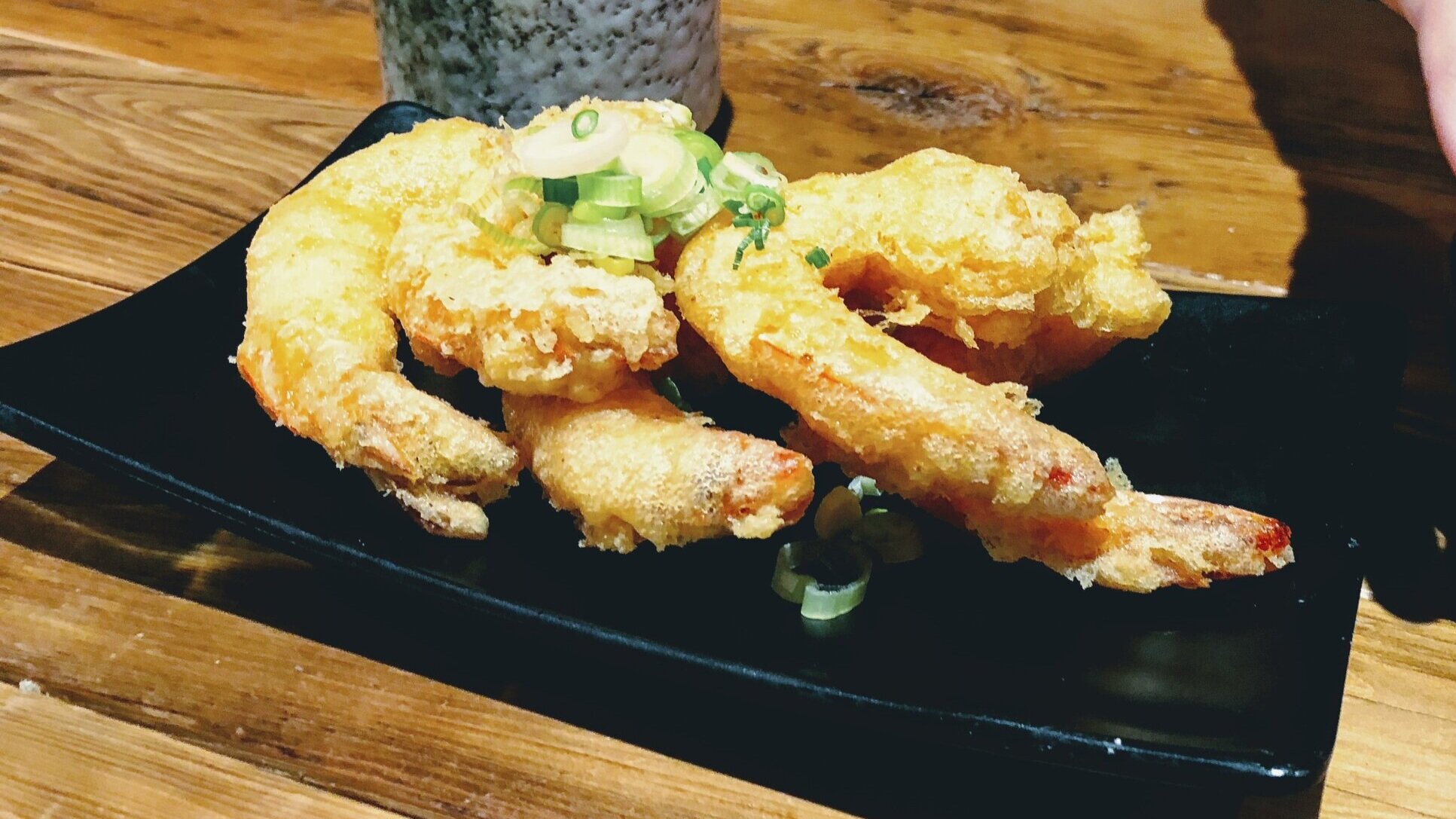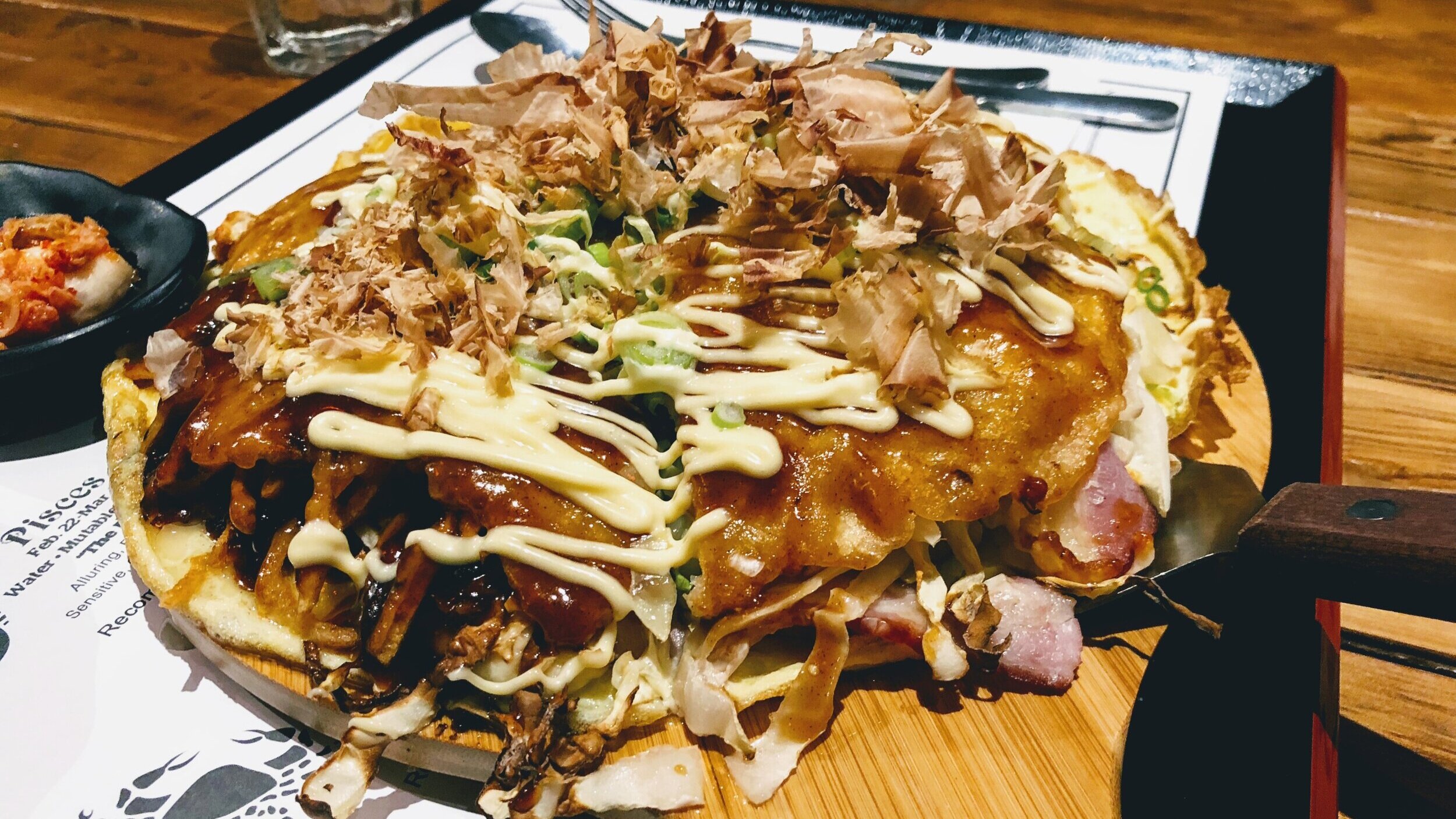Japanese Soul Food at Izna Donburi House
** This is an earlier version of an article that eventually appeared in the 2018 Food Issue of TOQUE Magazine **
Going out to a Japanese restaurant is not something that you would usually conflate with the idea of eating simple, soul-satisfying comfort food. The occasion is typically associated with the refined and delicate flavours of sushi or sashimi. The recently opened Izna Donburi House in Kitchener, who is putting hearty, home-style Japanese cooking in the spotlight, may serve to alter that preconception. Donburi is a dish you would most often find on the table of a Japanese home, consisting of meat, fish, or vegetables, simmered in sauces and served atop a heaping bowl of rice. The warm space of Izna is host to this traditional comfort food, alongside a number of other staples such as gyoza, ramen, and udon.
Long wooden tables under a canopy of dimly lit red lanterns invite you in, and the wood panel walls are smattered with colourful art, a sort of East meets West where Japanese calligraphy and Banksy prints hang side by each. The open style kitchen is a reflection of chef and owner Chris Lee’s years of experience in teppanyaki restaurants. It’s easy to get lost in conversation at the central communal table, which is dotted steaming mugs of green tea and colourful bottles of Sake. Sapporo is available on draught by the pint or schooner, served frigid and eminently glug-able alongside the hot, savoury Japanese comfort food.
We started with a couple classics, gyoza and karaage. The gyoza were monstrous, lightly fried and stuffed to the point of bursting. While karaage most often involves chicken, we went for the shrimp, which was so gratifyingly crunchy it made me re-evaluate years of opting for tempura. The entrees soon followed, served on giant, lavish cafeteria style trays, each lined with horoscope paper – a sort of tongue and cheek homage to the classic place setting one might come across at one of those old school Chinese buffets. Each dish was accompanied by house made kimchi and pickled radish. The kimchi was sublime, funky fermented cabbage that was perfectly spicy while still retaining a certain springy freshness.
Choosing our mains from the voluminous menu was a tall order, but we decided to split the katsu don, tonkotsu ramen, and the okonomiyaki. The katsu don was hearty, fried pork cutlet heaped on top of rice, with egg, a tangy aioli, and a generous garnishing of scallions. The flavours all melded harmoniously into one, while the contrasting textures of the crispy pork, soft rice, and creamy aioli made me almost forget there was anything else on the table. The tonkotsu ramen warmed the soul, with its rich fatty broth made from pork bones, and firm, chewy noodles.
The real star was the okonomiyaki, a self-described “Hiroshima style Japanese pancake,” that was a layered affair – equal parts deliciousness and ludicrosity. The base was composed of crispy matchstick potatoes, onto which bacon, cabbage, and eggs were layered respectively. Describing it as something along the lines of a pancake-omelette hybrid does not do it justice, but gives something of a reference point. The layers formed a mountainous wonder, atop which there was a drizzle of both a rich savoury “okonomiyaki sauce” and a sharp aioli, all of which was capped by a heaping pile of bonito flakes. It was enormous, about ten inches in diameter and six inches thick, served pre-cut into quarters. I mean, they gave us a pie lifter just to try and get at this thing. My shock quickly turned to elation as I tucked in to this delicious, hulking brute.
Izna Donburi House is an important reminder that there is more to Japanese food than simply stuffing yourself at just another all-you-can-eat sushi joint. This is real, handmade, heartwarming soul food. The portions are generous, and the food is executed with aplomb. Come with an open mind, and you will certainly leave with a full belly.



